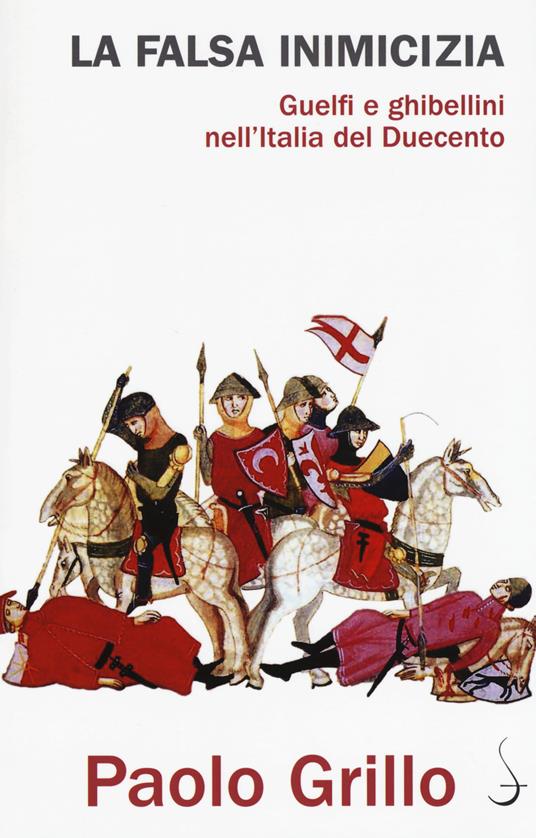The false enmity. Guelphs and Ghibellines in thirteenth-century Italy, by the historian Paolo Grillo, is not just a text to study; above all it is a great book.
Reading it in the light of today’s events – climate change, the tragedy of Ukraine and other armed conflicts, the pandemic virus, the widespread perception of political and social instability, the economic malaise – one experiences, as with other events or phenomena of the past , two apparently contrasting sensations: one of proximity (we are not strangers to those events, on the contrary; we relive them, albeit in different forms) e one of distance (it is “another world”, compared to ours).
And it is no coincidence that it recalls how, in the summer of 1257, the Samalas volcano, on the island of Lombok, in Indonesia, exploded, raising “a few billion tons of earth and rock” in the form of dust, which veiled the Sun. For two or three years, in particular, the particles of sulfuric acid altered the climate throughout the planet, causing lasting bad weather, floods, overflowing rivers, destruction of crops, famines in Europe. “The price of cereals went up everywhere”; for the poorest families it was a disaster.
In short: sort of globalization before globalization. Even nature was (and is) part of it. Everyone knows today of the extinction of the dinosaurs, 65 million years ago, perhaps linked to the fall of a meteorite. However, even that volcanic explosion had an apocalyptic flavor. And our peninsula, in the same years, was plagued by violent clashes within the municipalities, between the factions that fought for control, and between the coalitions and the geopolitical powers, especially in the centre-north. A few examples to suggest its scope. On 30 August 1258, in front of Brescia, the army of Cardinal Filippo da Pistoia, who had conquered Padua two years earlier, was defeated by the Ghibelline coalition of Ezzelino da Romano, lord of the Veneto, and of the other old vicar of the emperor Federico II Oberto Pelavicino, who controlled part of Lombardy and Emilia. In early October 1259, near Cassano d’Adda, Ezzelino himself was beaten and mortally wounded by an articulated and composite coalition, founded on the alliance between Pelavicino himself and the Guelph Azzo VII d’Este, lord of Ferrara. On 4 September 1260, then, in the famous battle of Montaperti, the army of Florence, flanked by military contingents from Lucca, Pistoia, Prato and other smaller municipalities, was overwhelmed by Sienese troops, supported by 800 German heavy cavalry sent by Manfredi , king of Sicily, and by the Ghibelline exiles of Florence.
And these political-military convulsions certainly contributed to the economic crisis, leading in turn to misery and hunger.
Hence the birth of the religious movement dei flagellants, often today regarded as a bizarre phenomenon or a joke. Instead, they were people worried about violence and calamities of all sorts, which seemed to indicate the imminent end of the world. It was a way to react, invoking God’s mercy with penance. Public self-flagellation, during processions, real marches for peacewas aimed at civil concord. It is no coincidence that the experience of the flagellants (friars of penance, lay and religious, also called beaten) helped to preserve Perugia for a long time from the calamity of war. It was a transversal movement, with respect to the social classes, even though it probably had “a strong popular connotation”. Not infrequently, then, they themselves entered the political dispute, as demonstrated by the case of Sigibaldo Opizzoni, former “rector of the People of Tortona”, who became leader of the flagellants of Genoa, who managed to obtain from the captain of the People and the podestà ” that all the exiles were readmitted”. Other times, however, as happened in Piacenza, the “beaten” ended up being manipulated by the factions, exacerbating conflicts rather than alleviating them.
Once the marches were exhausted, they gave life to the “dei Disciplinati” or “dei Battuti” brotherhoods, “under the protection” of the aforementioned Cardinal Filippo da Pistoia.
Here, I feel like saying that there are many dynamics analogous to the current ones. The difference is in the dimensions (ours is the era of large numbers, billions of human beings are involved), naturally in the technique (today’s means are unspeakably more powerful and sophisticated), in communications (in the global village everything seems to take place “in real time”). The “alchemies”, those of nature and those of politics and society, on the other hand, seem surprisingly similar.
